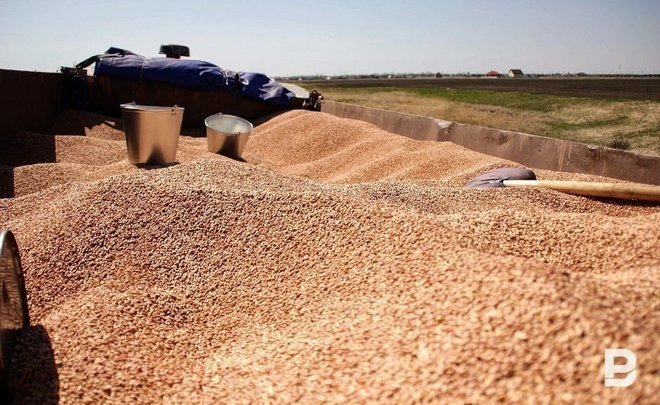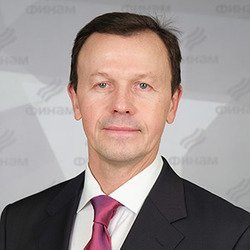Aleksandr Potavin: ‘It is hard to get quality food grain in Tatarstan and the Volga area’
An analyst of Finam FG about forecasts for harvest and losses, poorer quality and the situation in the Russian grain market

96,1 million tonnes of wheat will be collected in Russia this year, claims Rusagrotrans raising the previous outlook by 2 million tonnes due to increased fields and higher prospects of good harvest in the Volga area. However, the Russian Grain Union considers that up to 15% of the possible harvest can be lost. Poorer quality of collected wheat is another problem, for this season, export capacities of Russian agriculturists are shrinking, warns Finam FG’s analyst Alexander Potavin. In an op-ed column for Realnoe Vremya, the expert writes about the complicated situation in the Russian grain market.
High risks of harvest loss
Moscow Exchange launched trading of deliverable futures and options on wheat on 19 July. First of all, this will be interesting for agrarian market players because the new instrument is designed to reflect the wheat price in real time. Futures and options on wheat will also enable to open big possibilities to manage price risks and will be a convenient way of investing in the Russian wheat market. The contract is deliverable, which means there is no risk of physical delivery of a product according to a contract. The appearance of such deliverable futures on wheat will allow speculators and investors to have an updated and market indicator fully reflecting the Russian wheat price. Because earlier, Russia didn’t have such an instrument, while analogous foreign indicators didn’t completely demonstrate the pricing specifics for wheat in Russia. After such big exchange information providers as Bloomberg and Refinitiv exited from the market, there was a necessity of creating our own price indicators, so now deliverable futures on wheat will become such. Trading of this new futures will allow producers to hedge future changes in the wheat price.
It is highly likely that Russian agriculturists can fall short of grain this year. According to head of the Russian Grain Union Arkady Zlochevsky, losses can account for up to 15% of the possible harvest. The yield has increased this year — 42,6 quintals now versus 31,8 quintals a year earlier. However, as of 4 August, 56,5 million tonnes of grain was collected in Russia as of 4 August. This is 8 million tonnes less than (14%) during the same period last year. A delay in harvest collection because of rains is the reason. It started to sprout, which can lead to losses in harvest collection. Also, the grain accumulates humidity and will seriously lose weight when drying up. The head of the Russian Grain Union thinks the grain harvest can fall to 36,1 quintals per hectare in 2022, in other words, the average loss indicator will be about 15%.
Such a situation sometimes happens, and harvest losses occur approximately once in five years. This year, imports will also reduce. Logistic problems related to anti-Russian sanctions and settlement problems for grain that was already delivered will influence this.
An excess of fodder grain and Class 1 and 2 wheat deficit
Besides the expectation of a fall in harvest, there also appeared a problem of poorer quality of collected wheat. The Russian Grain Union considers that the share of food wheat can be 60% of the whole harvest against 82% last season because of humidity. As a result, Class 4 wheat (12,5% of protein) costs 13,000 rubles per tonne now, while fodder wheat is below 10,000 rubles, which means losses due to a high average prime cost. Due to the worse quality, Russian agriculturists’ export opportunities are shrinking since there won’t be simply enough good-quality wheat in stock. Poorer harvest will remain for our domestic consumption.
Also, together with record grain harvests, there has been seen a tendency for excess fodder production and a deficit of Class 1 and 2 wheat in the last years. About 70% of all high-intensity wheat brands is produced by the Krasnodar National Grain Centre. Most of their brands are situated in one-two regions, in other words, there were created only for the conditions in the country’s south. And now there isn’t such an amount of new brands to sow all fields in Siberia. Almost nobody deals with it.

Farmers to reduce area of crops
This year, due to anti-Russian sanctions, Russia has restricted exports of some food products, including grain and sugar. Russia has lifted limits on grain exports to EAEU countries since 1 July. Due to these limits on grain exports, there is an anomalous grain reserves in Russia. Reserve numbers by early 2022 have demonstrated the highest level in the last 10 years. And this growth of stocks is directly linked with export decreases. But everybody understands that grain has a limited shelf life, about five years on average, therefore the cancellation of restrictions on exports was very important. This year the sowing in rubles will cost some 20-30% more expensive than last year. While current grain and oil-bearing plants prices in the domestic market are lower than last year.
In such a situation, farmers will likely reduce areas of crops. Winter grain areas in some regions already reduced by a million hectares, or by 5%, last year because of duties and weather conditions. Moreover, Europe and the USA, which are now closed, mean that our farmers will use simpler and cheaper plant protecting agents, will stop regularly renewing agricultural machinery. With time, this will lead to a poorer harvest, and in case of draught this can lead to a sudden failure in production, which will in turn result in a rise in prices for foods for ordinary Russians.
Reference
The author’s opinion does not necessarily coincide with the position of Realnoe Vremya’s editorial board.